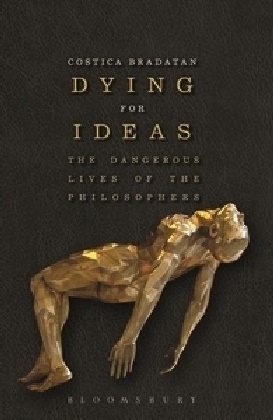Read more
Zusatztext Poignant, provocative, astute, moving, thoughtful. Informationen zum Autor Costica Bradatan is a Professor of Humanities in the Honors College at Texas Tech University, USA, and an Honorary Research Professor of Philosophy at University of Queensland, Australia. He is the author or editor of several books, and his work has been translated into many languages, including Dutch, German, Italian, Chinese, Vietnamese, and Farsi. Bradatan writes regularly for such publications as the New York Times, Times Literary Supplement, Aeon, Dissent, and The New Statesman, and serves as the Religion/Comparative Studies Editor for the Los Angeles Review of Books . Klappentext What do Socrates, Hypatia, Giordano Bruno, Thomas More, and Jan Patocka have in common? First, they were all faced one day with the most difficult of choices: stay faithful to your ideas and die or renounce them and stay alive. Second, they all chose to die. Their spectacular deaths have become not only an integral part of their biographies, but are also inseparable from their work. A "death for ideas" is a piece of philosophical work in its own right; Socrates may have never written a line, but his death is one of the greatest philosophical best-sellers of all time.An engaging and thought-provoking journey through the history of philosophy and philosophers who died for ideas.What do Socrates, Hypatia, Giordano Bruno, Thomas More, and Jan Patocka have in common? First, they were all faced one day with the most difficult of choices: stay faithful to your ideas and die or renounce them and stay alive. Second, they all chose to die. Their spectacular deaths have become not only an integral part of their biographies, but are also inseparable from their work. A "death for ideas" is a piece of philosophical work in its own right; Socrates may have never written a line, but his death is one of the greatest philosophical best-sellers of all time.Dying for Ideas explores the limit-situation in which philosophers find themselves when the only means of persuasion they can use is their own dying bodies and the public spectacle of their death. The book tells the story of the philosopher's encounter with death as seen from several angles: the tradition of philosophy as an art of living; the body as the site of self-transcending; death as a classical philosophical topic; taming death and self-fashioning; finally, the philosophers' scapegoating and their live performance of a martyr's death, followed by apotheosis and disappearance into myth.While rooted in the history of philosophy, Dying for Ideas is an exercise in breaking disciplinary boundaries. This is a book about Socrates and Heidegger, but also about Gandhi's "fasting unto death" and self-immolation; about Girard and Passolini, and self-fashioning and the art of the essay. Acknowledgments Introduction1. Philosophy as Self-fashioning 2. The First Layer 3. Philosophy in the Flesh 4. The Second Layer 5. The Making of a Martyr-Philosopher Postscript: To Die LaughingBibliography Index ...
List of contents
Acknowledgments
Introduction
1. Philosophy as Self-fashioning
2. The First Layer
3. Philosophy in the Flesh
4. The Second Layer
5. The Making of a Martyr-Philosopher
Postscript: To Die Laughing
Bibliography
Index
Report
An intriguing 'dramatic narrative' of philosophers' clash with death . a book that is accessible to all philosophers, academic and non-academic alike. In this intelligent and artful account, [Bradatan] ranges from the ancient world to our own times, drawing on the stories of individual philosophers who defended and died for their beliefs ... Bradatan's rich examination of the philosopher's act of dying for ideas brings into focus the riskiness of living for them as well. Times Higher Education

